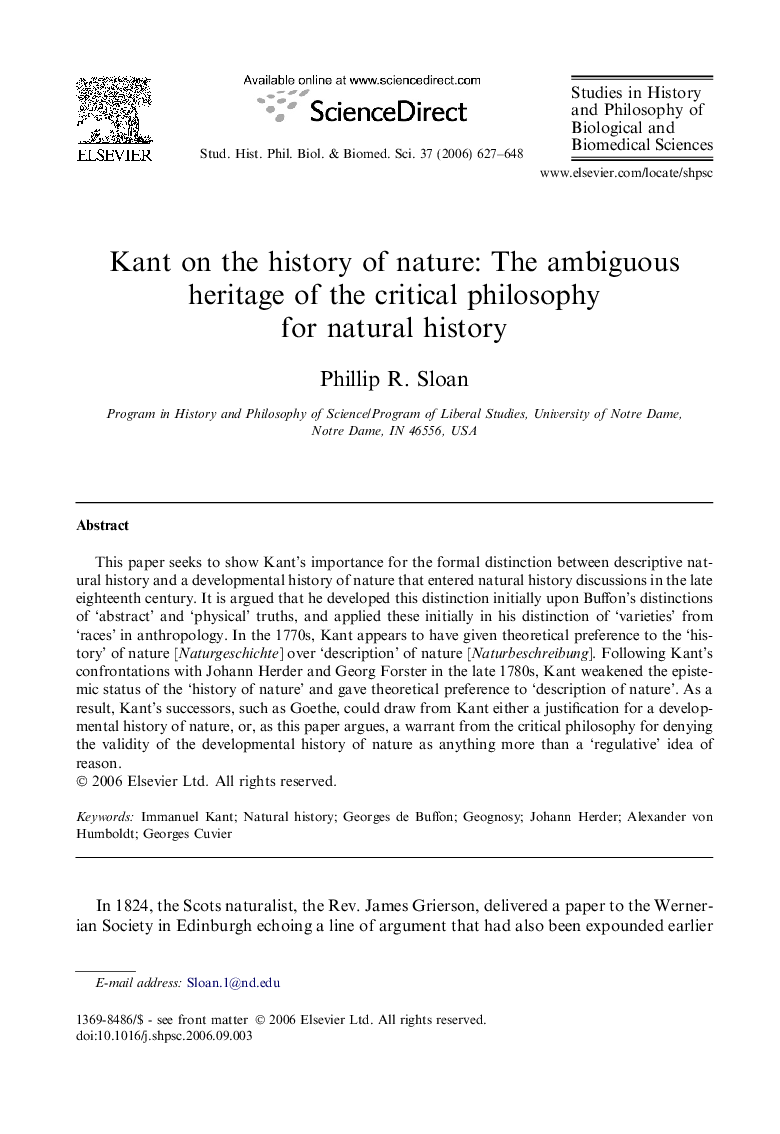| Article ID | Journal | Published Year | Pages | File Type |
|---|---|---|---|---|
| 1161362 | Studies in History and Philosophy of Science Part C: Studies in History and Philosophy of Biological and Biomedical Sciences | 2006 | 22 Pages |
This paper seeks to show Kant’s importance for the formal distinction between descriptive natural history and a developmental history of nature that entered natural history discussions in the late eighteenth century. It is argued that he developed this distinction initially upon Buffon’s distinctions of ‘abstract’ and ‘physical’ truths, and applied these initially in his distinction of ‘varieties’ from ‘races’ in anthropology. In the 1770s, Kant appears to have given theoretical preference to the ‘history’ of nature [Naturgeschichte] over ‘description’ of nature [Naturbeschreibung]. Following Kant’s confrontations with Johann Herder and Georg Forster in the late 1780s, Kant weakened the epistemic status of the ‘history of nature’ and gave theoretical preference to ‘description of nature’. As a result, Kant’s successors, such as Goethe, could draw from Kant either a justification for a developmental history of nature, or, as this paper argues, a warrant from the critical philosophy for denying the validity of the developmental history of nature as anything more than a ‘regulative’ idea of reason.
